By Robert St. Martin
Los Angeles, CA (The Hollywood Times) 8/26/24 – At the Frameline Film Festival in San Francisco on Sunday, June 23, there was a screening of Julian Hernández’s latest film “Demons at Dawn” (“Los demonios al amanecer,” Mexico, 2024). As with dance, the bodies in Hernández’s films are charged with speaking to their audience, an audience that is clearly gay and receptive to his special aesthetic.
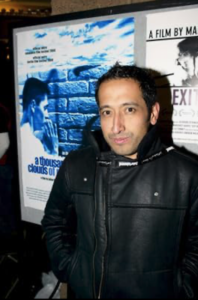
Hernández achieves this with a ravishingly handsome cast of young men and women who embody his now-familiar themes of first love’s singular intensity, the instructive power of betrayal, and the wistful nature of how regrets bring young people to reconsider their mistakes.
Julian Hernandez’s films are about gay men seeking happiness and their search describes his method: a flowing, entranced, sensual visual style that is his signature. Intertwined bodies have a poetry of movement that mirrors the synchronized bond of their very spirits. In a typical Hernández film, we become entranced in the dance of love which is staged slowly.

Twenty-year-old professional dancer Orlando (Luis Vegas) also is refining his craft at a ballet school but also dances at the nightclub as a go-go boy. One day on the street, when he spots the adorable Marco (Axel Shuarma), an aspiring nursing student, waiting for a bus in Mexico City. They madly fall in love at the first sight. They have lots of intense sex and, in a Hernández film, that means lots of passionate kissing. Marco has just begun renting an apartment of his own and after a night furtively making love in the bedroom of Orlando’s parents’ house, Marco decides to give Orland a key to his new apartment.
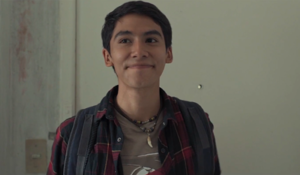
In some of Hernández’s previous films, he shows gay sexual cruising being as ballet and here the love making becomes its own musical dance. Orlando’s movements as a dancer are beautiful to see and he seems to express himself best in dance. Alejandro Cantú’s cinematography captures the movement of Orlando’s dancing orbiting around his body. For Orlando, dance is his mode of expression. Marco is better with words and seems to his time better organized between nursing school and his extra job working in a hotel. In a typical Hernández, we become entranced in the dance of love which is staged slowly.

But the love affair begins to fall apart when some challenges to their assumptions about love and life emerge. Orlando’s best friend Bruno (Maura González) also dances as a go-go boy at the same nightclub. Orlando is told of an opportunity to dance on a television talent show that might bring him some money and he needs a female dance partner; so he takes up dancing with Marco’s friend Cecilia (Angélica Baños Hernández) as his partner. Meanwhile Marco is quite focused on his nursing studies along with his friend Elis (Luis Miguel Mata) to whom Marco confides his passion for Orlando.
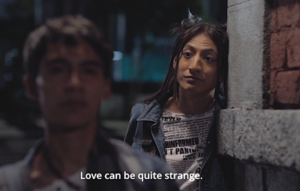
Time passes and the work lives of the two young men begin to strain their relationship. They begin to grow apart, and their hearts are inevitably broken. The director beautifully tells a genuine and captivating story, with the outstanding performances from the lead actors, and a masterful cinematography. Julian Hernández is a prominent queer director, Hernández has twice won the Teddy Award at Berlin with his movies A Thousand Clouds Of Peace (2003) and Raging Sun, Raging Sky (2009).

Hernandez, one of Mexico’s finest filmmakers, but remains unknown to many gay moviegoers. He is overlooked by most film reviewers and film culture gatekeepers – even the gay ones – who remain ignorant of his work while celebrating less significant but trendier gay films.
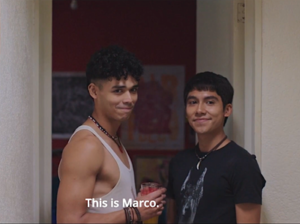
Gay filmmakers are usually propelled into the mainstream by the media’s patronizing fascination with political correctness and stereotype pathology. But Hernández doesn’t fit those Gus Van Sant and Gregg Araki patterns. Nor does he fit the media’s enthusiasm for the more European-style, non-ethnic “Three Amigos” Mexican directors Inarritu, del Toro, and Cuaron. Julian Hernández builds his films around a specific Mexican cultural identity – rooted in the emotional depth of Mexican pop music and the shared culture which also acts as an erotic force felt by men as well as women.
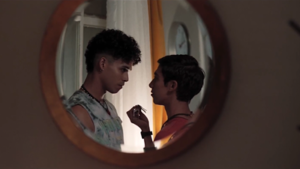
A number of films by Julian Hernández are available through Strand Releasing and most likely this film will have the same distributor.





